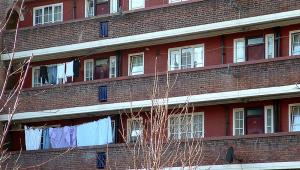By Lucy Phillips
18 November 2010
David Cameron was quizzed about the Comprehensive Spending Review by senior MPs this afternoon, resulting in a particularly lively tussle over the changes to Housing Benefit.
The prime minister was being questioned by the Commons liaison committee. It was the first time he has been scrutinised by the group of select committee chairs since entering Number 10 in May.
Clive Betts, chair of the communities and local government select committee, put it to the prime minister that the proposed reforms to Housing Benefit would increase the benefit bill and make it impossible to have mixed communities in expensive areas of cities such as London.
The government’s changes include introducing a cap on Housing Benefit, charging rents that are closer to market value and cutting housing benefit by 10% for those who remain on Jobseeker’s Allowance for over a year.
Cameron said the government had to tackle the Housing Benefit bill, which had increased by 50% over the past five years, ‘for the deficit problem’.
He said the new rent-based model would encourage more developers to build social housing and that it was ‘time to try something new’ given that policies to build new homes over the past decade had failed. Cameron admitted that the move would ‘put pressure on the Housing Benefit bill’ but added that it was another reason for ‘making sure we get on top’ of it.
Cameron said the government supported mixed communities, adding: ‘What we are trying to do is move to a situation where we are not asking working people to pay taxes to support people on Housing Benefit to live in houses where they could not afford to be in if they were working.’
He also revealed that the package of changes was likely to ‘only stem the increase or result in a modest reduction’ rather than a full-scale drop in the cost of the benefits.
As the exchange became more heated, Margaret Hodge, chair of the Public Accounts Committee, asked the prime minister whether social unrest was a price worth paying for the reforms. Cameron replied that taxpayers were more likely to take to the streets over how much money people were getting in the benefit – sometimes up to £50,000 a year.
Hodge earlier asked the prime minister what would happen if the government was unable to achieve the £81bn of spending cuts set out in the CSR, reminding him that previous attempts at efficiency savings in Whitehall had largely failed.
Cameron said there had not been the same need to find savings in the past, adding: ‘We are in a different situation because departments really can see that, in some cases, their baselines are being reduced.’
Departments ‘had got to deliver the reductions’, making especially sure they looked at back-office costs, he said.
Earlier in the evidence session, Cameron was forced to defend his decision to ring-fence the NHS budget, increasing the cuts to other areas of spending. Admitting it was a contentious issue, he said it was the right thing to do given the increasing cost pressures facing the health service. The government also wanted ‘to protect the one thing we all care about very deeply’, he said.
Decisions behind the Spending Review were based on a drive for fairness and better social mobility, Cameron said. The push was particularly enshrined in the pupil premium.



















